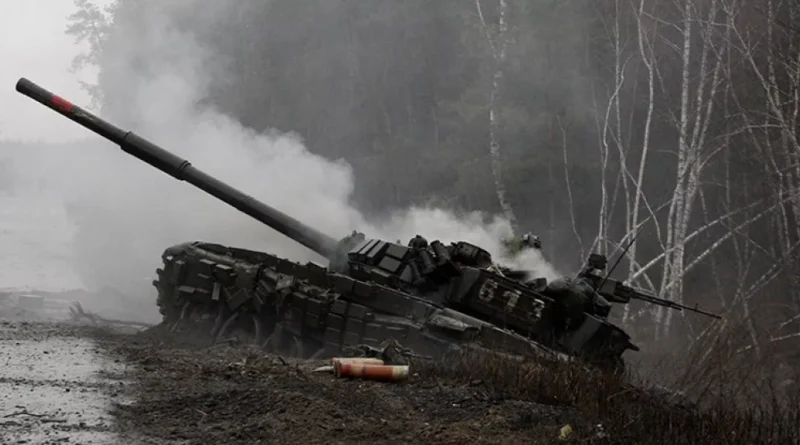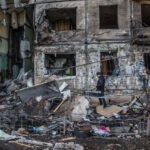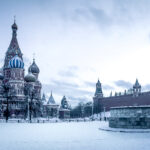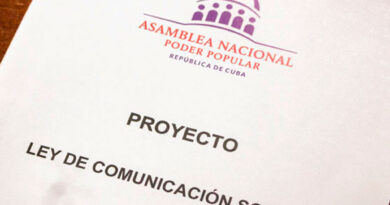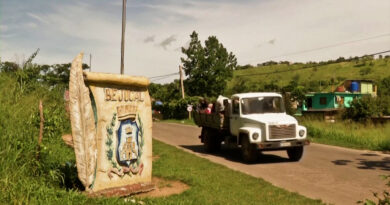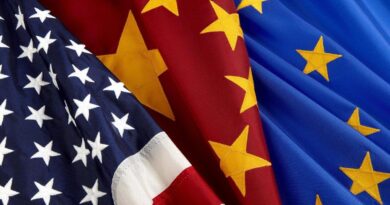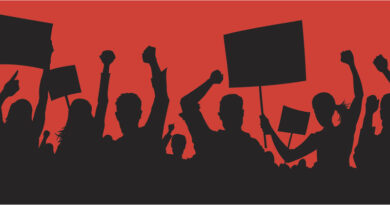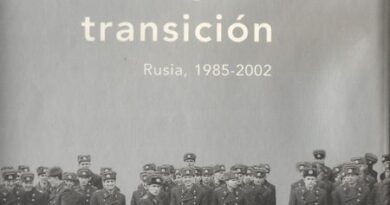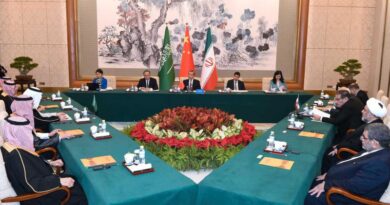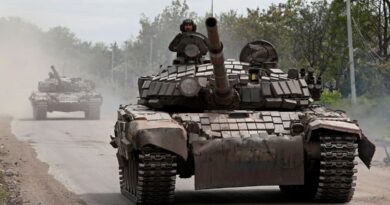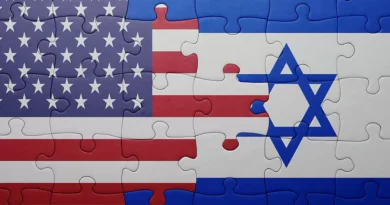The transformation of Russia and the scenes of war
RAFAEL POCH-DE-FELIU
"European values" (which, of course, do not include warmongering, Auschwitz, or racist colonialism) and "human rights" (that is, their selective use via Western human rights policy) no longer impress the public. non-western world, fed up with hypocrisy and double standards.
The African tours of the European representative for Foreign Policy, Josep Borrell, and the French President, Emmanuel Macron, or the Latin American tour of the German Chancellor, Olaf Scholz, offered unequivocal signs in early 2023 in this regard. The inflation of Nobel prizes and literary tributes to mistreated Belarusian, Russian and Ukrainian characters and authors united by their hostility to the Kremlin, as well as the judicial indictment against Putin from the International Criminal Court, change little: the ideological artillery and the discourse of the masters of the world is losing credibility and power.
In February, China launched its global security proposal and a peace plan for Ukraine that has been shunned with nervousness in Washington and Brussels. In March 2023, Chinese diplomacy brokered a sensational deal to restore relations between Saudi Arabia and Iran, and President Xi Jinping demonstratively visited Moscow on his first trip after his re-election to a third term as president.
In Russia itself, Western-sponsored "regime change" is taking unsuspected paths. Everything indicates that it will take place on a very Russian script, in which the regime will become more authoritarian and social at the same time. To understand this aspect it is necessary to enter into the contradictions between the Western liberal oligarchy and the Russian oligarchy.
From a "class" point of view, the war between Russia and the West in Ukraine is a product of the Russian establishment's frustrations at not being accepted on an equal footing by their Western capitalist counterparts. What did it mean to be accepted "on an equal footing"? Fundamentally, that the West recognized the sovereignty and primacy of the Russian elite in the plunder of the national patrimony and the rich resources in its own country, including in this recognition that of Russian interests in its geographical environment, a kind of "Monroe Doctrine" of the post-Soviet space even if it was in conditions of condominium with the West, Turkey and China, as has been the case in Central Asia and Transcaucasia.
It took them years in Moscow to understand the seriousness of the Western globalist project that envisioned a subaltern Russia with a comprador national elite subordinated to the large Western transnationals. They were slow to understand that there was no intention of recognizing "sovereignties" or private preserves of the Russian oligarchic elite derived from the traditional state control that this elite has of business, privatizations and embezzlement in the largest country in the world. Westerners wanted unrestricted free access for their multinationals to Eurasian resources, and of course recognized no political, economic, or military "zones of influence" beyond their own hegemonic domain. Moscow's initial collaboration was seen as weakness and Putin's repeated complaints ignored for years.
All of this is contained in the reproach to the West for not having been able to “agree with Russia and China on the terms of the new world”, formulated by Sergei Karaganov, a well-known organic Kremlin intellectual.
Determined to gain respect by force, the Kremlin is now forced to make internal change. The tension with the West, the sanctions and the war effort put an end to everything for which Putin was appreciated by the majority of Russians: he got them out of the disasters of the XNUMXs, of the continuous deterioration of the standard of living of the majority . A certain institutional and symbolic stability was recovered, and the essential functions of the State were restored.
This accumulation of improvements more than forgave the injustices of neoliberal continuity and the excesses of oligarchic capitalism, which remained more subject to the State, the frauds of the elections without alternative. Now those benefits are faltering. A patriotic sacrifice is demanded of the population with possible recessions and falls in the standard of living, in the face of the "existential threat" that the Kremlin says is looming over Russia.
It can be said that the social contract of Putinism has been dissolved. But if the sociology studies carried out in the country in recent years make anything clear, it is the priority that people give to well-being over the identity of a great power. There is no longer in Russia that Soviet predisposition to popular sacrifice on the altar of the supreme interests of the State. That means that the new consensus must be bought.
For this reason, either there is a radical change in the socioeconomic sphere and the Kremlin proposes to society a new social contract, with greater distribution, less inequality and economic abuse, or else mere repression will not be able to prevent a bankruptcy of the political regime.
The political scientist Dmitri Trenin already called for in March 2022 "the re-edition of the Russian Federation on politically more sustainable, economically efficient, socially fairer and morally healthier bases." Faced with what is coming his way, the regime must "mobilize all resources" and "gain the support of the most vulnerable sectors of the population," he said. To do this, “the channels that feed corruption must be cut off; reorient big business towards national interests; a new human resources policy to significantly improve the quality of public administration at all levels; social solidarity; the return of fundamental, non-monetary values, as the basis of life. These changes, in turn, are impossible without overcoming oligarchic capitalism that exports capital to tax havens, a wide rotation of the ruling elite, the state and administrative apparatuses and, as a consequence, the renegotiation of the social contract between government and society. on the basis of mutual trust and solidarity'. "The Russian state is almost invincible from the outside, but it collapses when a significant mass of Russians become disillusioned with their rulers and with the unfair and dysfunctional social system," he warned.
The Ukrainian sociologist Volodymyr Ishchenko has pointed out in this context the configuration in Russia of a certain military Keynesianism. To serve the war effort, Russian military factories are working twenty-four hours a day in continuous staff shifts seven days a week. The social services and salaries of these defense, production, research and development personnel are being pampered. Those who enlist by contract in the army to fight are paid monthly salaries of three thousand dollars, a very high sum that solves the economic problems of hundreds of thousands of families, particularly in the poorest regions of the country that are the main quarry from army.
Reconstruction taking place in devastated cities in western Ukraine, occupied and annexed by Russia, such as Mariupol, is employing tens of thousands of highly paid construction workers. Regardless of its long-term effectiveness, all of this is stimulating the national economy and contributing to the reconstruction of the social State.
Putin's latest speeches point to new "social" and "anti-colonial" tones, with unusual criticism of the oligarchs who no longer have the opportunity to enjoy their palaces and yachts in London or the Côte d'Azur. "The people have no pity for them," Putin has said, calling on the rich who can no longer evade their profits to tax havens to invest patriotically in the national economy. All this is aimed at building a new social consensus in the country and its evolution must be carefully observed.
The war is open to various scenarios, none of them good, but some more likely than others. According to the French political scientist Jacques Sapir, starting with what seems least likely, and with all the reservations imposed by the situation at the front at the time of writing these lines, it cannot be excluded that the famous Ukrainian offensive will take place and that, armed With the armored and air resources supplied by the NATO countries, I was able to reconquer territories occupied by the Russian army and even reach the sea and split the occupied zone in two. In such a scenario, the conflict could be frozen with a Korean-style armistice, that is, without a peace agreement or any negotiation other than a ceasefire.
In a second, more dangerous scenario, the Ukrainian army collapses in the coming months, Russia advances its lines and Poland freely intervenes militarily, without compromising NATO. In Ukraine there are already thousands of Polish fighters fighting in the Ukrainian army, but what is involved here is a full-fledged and open military intervention by the Polish army. It should be remembered that Poland has a long history of disastrous decisions in its national biography, simultaneously confronting superior powers and promoting the distribution of its territory.
Honoré de Balzac, who was married to a Polish noblewoman born in the Ukraine, already evoked this reality in the XNUMXth century, saying that if there is a precipice, the Pole jumps off it. Since the beginning of the conflict, Poland has shown the most insanely belligerent attitude in the entire European Union, strengthening its army and requesting NATO military intervention, as well as the deployment of American nuclear weapons on its territory. With his announcement to deploy strategic nuclear weapons in Belarus, Putin seems to be preparing himself for the eventuality of a Polish military intervention, the consequences of which would be unpredictable.
Third, following the scale contemplated by Sapir, which he considers more likely than the other two, the "Mannerheim scenario": Russia slowly advances into Ukrainian territory and there comes a time when Ukraine agrees to negotiate territorial losses and neutrality, in exchange for security guarantees.
This is what the Finland of Marshal Mannerheim did after the brief "winter war" of 1939-1940 with the USSR, which sought to ensure the defense of Leningrad by expanding its territory at the expense of the Finn. Mannerheim ceded 11% of the national territory and reached a consolidated balance after World War II with a stable and neutral Finland. In the background, Sapir's three scenarios, exposed in an intervention on March 21, 2023 together with Emmanuel Todd, accessible on YouTube, illustrate a situation open to various evolutions, some more dangerous than others, but all with serious risks ahead. .
The war is an unmitigated disaster for the global North as a whole. A criminal waste of time for humanity in the Anthropocene period. That "right-wing left" in favor of feeding it with the shipment of arms would do well to correct the shot and take inspiration from another French author, the multifaceted Boris Vian (1920-1959). Vian was the author of the famous song "El desertor".
Hundreds of thousands of young Russians have fled the country, fleeing the possibility of conscription. In March 2022, there were hundreds of thousands of Ukrainian men of military age in Poland who did not return to their country to fight. According to official Ukrainian sources, by December of the same year the authorities had detained more than twelve thousand people who tried to cross the border illegally to avoid being recruited. Some froze to death trying to escape Ukraine in the Carpathian mountains, or drowned in border rivers. Amid the beating of drums and the criminal infamy of war, they are the genuine representatives of human hope.

